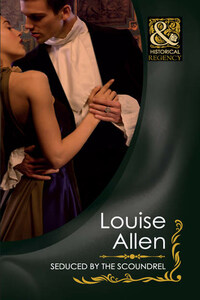“Maria,” Charles teased, gently touching her cheek with the back of his hand. “You are blushing.”
“And I think you are quite mad.”
“My thoughts exactly,” he whispered, and, bending his head, he pressed his lips to her forehead, placing his hands around her upper arms and drawing her against his chest, holding her as if he knew she would struggle if he tried to do more than that. “When we set out on this journey, you were not in my plans, Maria.”
“Oh, please,” she implored helplessly. “I don’t know what you want of me.”
He took her chin between his thumb and forefinger and lifted it, forcing her to meet his steady gaze as he quietly said, “A kiss would not go amiss.”
“Nevertheless, I think you should proceed with caution.”
“A little kiss here and there is quite harmless.”
“A little kiss here and there is dangerous,” she countered, thoroughly convinced of that where he was concerned.
Marrying Miss Monkton
Harlequin® Historical
Available from Harlequin>®Historical and Helen Dickson
The Rainborough Inheritance #24
Honor Bound #38
Katherine #56
An Illustrious Lord #80
An Innocent Proposal #104
Conspiracy of Hearts #114
Lord Fox’s Pleasure #130
Carnival of Love #137
The Pirate’s Daughter #143
Highwayman Husband #154
The Property of a Gentleman #160
Belhaven Bride #190
The Earl and the Pickpocket #201
Rogue’s Widow, Gentleman’s Wife #853
His Rebel Bride #222
Wicked Pleasures #873
A Scoundrel of Consequence #248
The Defiant Debutante #256
Seducing Miss Lockwood #263
Marrying Miss Monkton #271
The day was wet and blustery. Charles had slept little, and uneasily, for the problem of going out of his way to call at Chateau Feroc was an added irritant he could do without. He lifted his lean face so that trickles of water ran down his cheeks. The weather suited his mood.
He rode into a small village with one main street. It was no different from any other village in France, with its huddle of poor cottages, a church tower on the outskirts, a windmill and a tavern. A particular stench arose from the gutters to assail his nostrils and touch like icy fingers upon his deepest fears. It was the stench of poverty, the foul, unacceptable smell of humanity at its lowest.
The wind had risen and the fallen leaves went whipping along the ground and collected in roadside ditches. The road along which he slowly rode was narrow and crooked and paved with cobblestones, glistening with the rain. There were few people about, and the few he saw were ragged; when they turned to face him on hearing his horse’s hooves, he could see raw hunger in their eyes, and every time he saw it he wanted to curse.
These were troubled and dangerous times in France. The country was suffering financial difficulties, which stemmed from the heavy costs incurred by France during the war with America, which had left the Treasury bankrupt. But the ordinary masses were of the opinion, and rightly so, that France’s troubles were not helped by lavish court spending. To pay the heavy taxes imposed on them, people starved while the nobility were busy at the elaborate idleness in their grand chateaus or at the palace of Versailles, in the swim of the gay life of Louis XVI’s artificial paradise. Revolution was already apparent in the minds of the masses.
On the edge of the village Charles saw an old man and a child of no more than five or six, a boy, he thought, stooping and carefully picking up sticks and placing them in a sack. It was, he knew, their only means of warmth and to cook the meagre rations that came their way. Stumbling, the old man dropped the sack and his precious kindling tumbled out. The child bent to retrieve them, his fingers young and nimble compared to those of the elder. Charles stopped and dismounted and helped them in their task.
When the sticks had been retrieved, the old man smiled at Charles out of his lined face.
‘My thanks, monsieur,’ he said.
Charles looked at him, wondering how old he was. He knew he was probably many years younger than he looked, but when he asked him, his answer shocked him.
‘Thirty-two.’ His smile broadened when he saw shock register in the stranger’s eyes. ‘Hunger makes old men of us all, monsieur.’
The distant sound of carriage wheels rumbling on the cobbles reached their ears, an impatient drumming that came slowly nearer, growing louder and sounding clearer. All three looked ahead and stepped aside to avoid being run down by the coach and four bowling towards them. The uniformed coachman was lashing the horses, the black coach careering so fast that the wheels were almost lifted clear of the ground, the horses’ hooves making sparks against the cobblestones.














